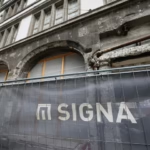A new survey from two major U.S. health insurance groups suggests that a large portion of payment disputes filed under the No Surprises Act never should have gone to arbitration. According to the report released by AHIP and the Blue Cross Blue Shield Association (BCBSA), health plans determined that 39% of disputes submitted by providers in 2024 were ineligible for the independent dispute resolution (IDR) process — more than double the rate identified by mediators themselves.
Insurers allege providers are “gaming” the system
The findings, first reported by Healthcare Dive, add fuel to a growing conflict between insurers and medical providers over how arbitration is being used. Under the No Surprises Act, passed in 2020 to protect consumers from unexpected medical bills, out-of-network providers and insurers who cannot agree on a reimbursement rate must submit to binding arbitration.
However, arbiters deemed only 17% of disputes improper, meaning more than half of ineligible claims still resulted in binding payment determinations. Insurers argue this has led to inflated payouts and unnecessary costs across the healthcare system.
The same private equity-backed outfits that created the surprise billing business model have turned to arbitration abuse as their new strategy to gouge consumers and employers, said Mike Tuffin, president and CEO of AHIP.
Private equity groups dominate filings
Research cited in the report supports the insurers’ claims. Since the arbitration system began in 2022, it has been flooded with far more disputes than regulators expected. A small number of private equity–backed medical groups are responsible for a disproportionate share: Radiology Partners and TeamHealth accounted for 43% of all resolved claims between 2023 and 2024, according to federal data analyses.
Providers often prevail in arbitration, typically winning payments about four times higher than in-network reimbursement rates. Insurers say this creates an incentive for providers to flood the system with ineligible disputes, driving up premiums and administrative costs.
The survey, which included data from 25 health plans covering 154 million Americans—roughly three-quarters of the U.S. commercial market—found that plans identified 33% of emergency, 45% of non-emergency, and 23% of air ambulance disputes as ineligible. Arbiters, by comparison, disqualified far fewer: 15%, 19%, and 10%, respectively.
Costly inefficiencies and uncertain reform
Insurers estimate they were forced to pay out at least 184,500 improper disputes last year. Common reasons for ineligibility included late filings, missing documentation, claims governed by state-level arbitration rules, or services not covered under the No Surprises Act.
The Center on Health Insurance Reforms at Georgetown University estimates that ineligible filings and other inefficiencies may be adding between $2 billion and $2.5 billion in wasteful spending each year.
Both AHIP and BCBSA have urged regulators to tighten oversight of the arbitration system, calling for stricter eligibility reviews and stronger accountability measures.
While the Centers for Medicare and Medicaid Services (CMS) is expected to finalize new rules aimed at improving the IDR process, including dispute eligibility checks, progress has been delayed by the ongoing government shutdown.
According to Healthcare Dive, CMS has recalled furloughed staff to ensure continued operations during the health plan enrollment period, but meaningful reform of the arbitration process remains uncertain.








